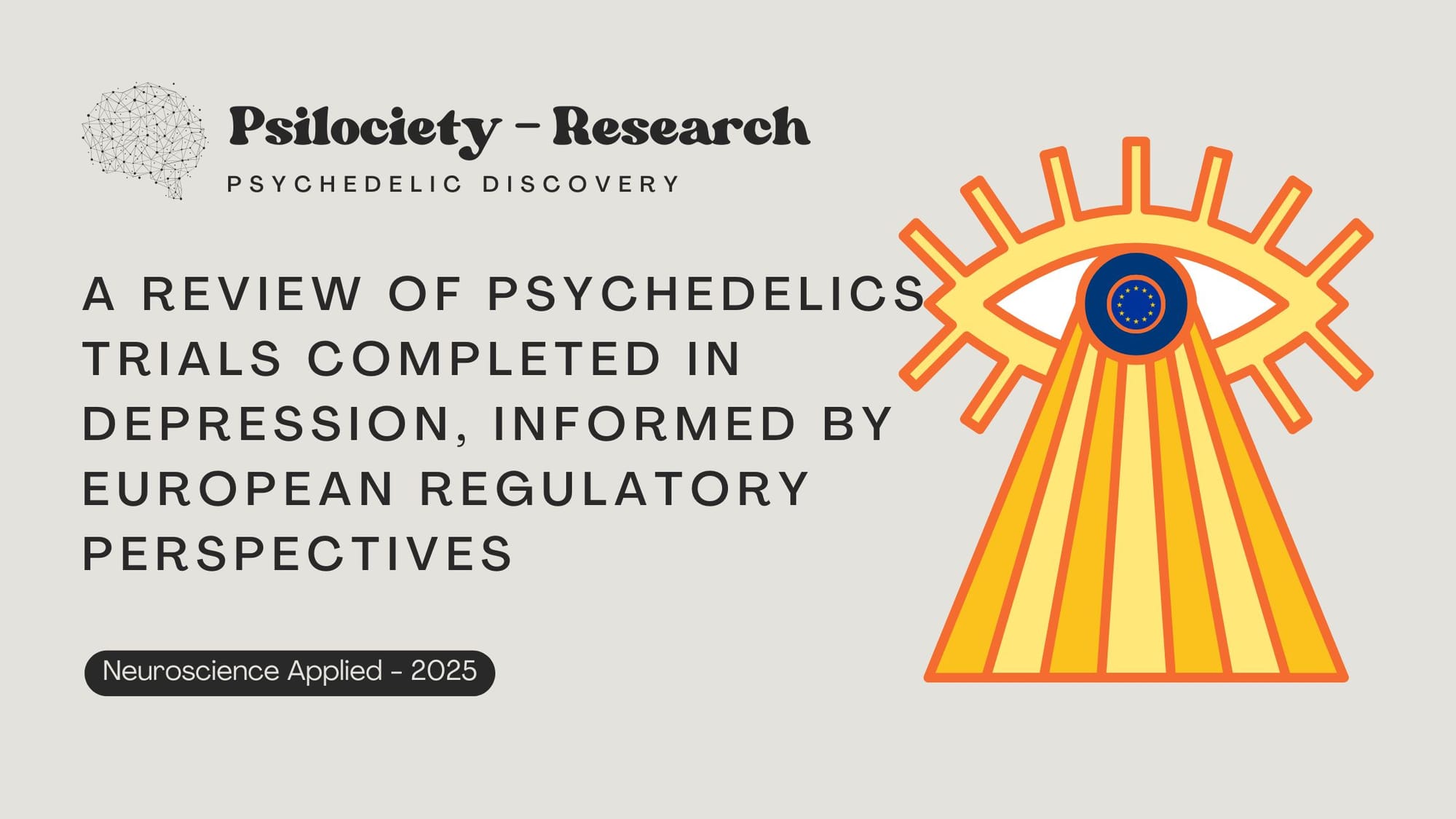A Review of Psychedelics Trials Completed in Depression, Informed by European Regulatory Perspectives
A systematic review of completed psychedelics trials for depression, highlighting key findings and regulatory challenges.

Title & Introduction
- Paper Title: A Review of Psychedelics Trials Completed in Depression, Informed by European Regulatory Perspectives
- Published In: Neuroscience Applied
- Publish date: February 26, 2025
- Authors: Francisca Silva, Florence Butlen-Ducuing, Lorenzo Guizzaro, Pavel Balabanov
- Objective: To review completed controlled clinical trials on psychedelics for depression, evaluate their methodologies, and discuss findings in light of emerging European regulatory guidelines.
- Importance: As interest in psychedelic-based treatments for depression grows, regulators are establishing frameworks for their medicalization. Understanding past trials helps refine study designs, address safety concerns, and navigate regulatory approval processes.
Summary & Takeaways
Key Takeaway: While preliminary clinical trials show promise for psychedelics in treating depression, challenges such as unblinding, expectancy effects, and regulatory complexities must be addressed in future studies.
Practical Application: Future psychedelic trials should incorporate active placebos, assess long-term efficacy and safety, and standardize treatment frameworks to align with regulatory expectations.
Key Background Information
- Context: Psychedelics have been increasingly studied for their potential to treat major depressive disorder (MDD) and treatment-resistant depression (TRD). However, no classic psychedelic has yet been approved for clinical use.
- Hypothesis: Psychedelics, administered under controlled conditions, may provide significant relief for individuals with depression by facilitating psychological breakthroughs and enhancing neuroplasticity.
Methodology
- Study Design: Systematic review of completed randomized controlled trials (RCTs) on psychedelics for depression.
- Participants: 8 completed trials with a total of 595 participants, focusing on MDD and TRD.
- Intervention/Exposure: Substances studied included psilocybin, LSD, ayahuasca, and DMT.
- Controls: Comparisons included active placebos, low doses of psychedelics, and inert placebos.
- Duration: Trials spanned between 2014 and 2022, with follow-ups ranging from 1 to 12 months.
Key Findings
Primary Outcomes:
- Psychedelics showed significant short-term antidepressant effects.
- Most trials reported a rapid onset of symptom relief, sometimes within hours or days.
- Effects persisted for weeks to months in some cases.
Secondary Outcomes:
- Psychedelics induced profound subjective experiences linked to therapeutic benefits.
- Participants with stronger mystical-type experiences showed greater symptom improvement.
- Blinding issues and expectancy effects were common across trials.
Interpretation & Implications
- Conclusion: Current evidence supports psychedelics’ antidepressant potential, but additional rigorous studies are needed to confirm efficacy, optimize dosing, and ensure safety.
- Implications: Future research should focus on phase 3 trials, improving blinding methods, and characterizing long-term safety. Regulatory alignment will be crucial for eventual approval and clinical implementation.
- Limitations: Sample sizes were small, and trial designs varied, making direct comparisons difficult. Long-term safety remains insufficiently studied.
Researchers & Publication
- Researchers: Francisca Silva, Florence Butlen-Ducuing, Lorenzo Guizzaro, Pavel Balabanov
- Publication Name: Neuroscience Applied
- Study URL: https://doi.org/10.1016/j.nsa.2025.105516

